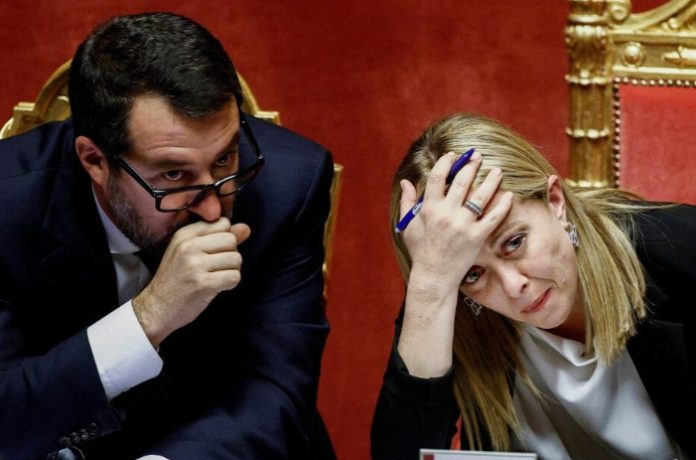Tensions are rising in Italy’s ruling coalition after a proposal by Matteo Salvini’s Lega (ID) party to extend the maximum number of terms for regional governors failed to find support from other right-wing coalition partners.
On Wednesday, the Italian Senate rejected two surprise amendments proposed by Lega. Meanwhile, coalition allies, Foreign Minister Antonio Tajani’s centre-right Forza Italia (EPP) and Prime Minister Giorgia Meloni’s Fratelli d’Italia (ECR), as well as the main opposition parties voted against them.
Had Lega succeeded in getting the amendment passed by the Senate with the support of the opposition Democratic Party (DP, S&D), these amendment proposals would have destabilised the majority and possibly caused a split in the ruling coalition.
Although this may change in the future, the proposed changes would mainly help the Lega but also the DP, as most of the regional governors currently in their second term are Lega members and two are DP members.
For example, the Lega governor of Veneto, Luca Zaia, is very popular as he won the last election with a 76 per cent majority. Veneto elections are expected next year.
Lorenzo Castellani, a political scientist at LUISS Guido Carli University, believes that the refusal of Fratelli d’Italia and Forza Italia to support the Lega proposal should not be seen as a threat to the stability of the government, but as a lack of consensus on institutional issues.
However, Castellani told Euractiv Italy that in his opinion there will be an intensification of disagreements on institutional issues, suggesting that Lega could retaliate by not supporting Meloni’s “mother of all reforms” aimed at the direct election of future prime ministers.
Changes could come after the European elections, especially if they lead to a change in the power dynamics within the coalition or among the various government partners, particularly Lega.
The Lega is currently facing structural difficulties, according to pollster and political analyst Lorenzo Pregliasco, who pointed to Salvini’s declining performance after his party peaked at 34 per cent in the 2019 European elections, with the drop in popularity contrasting with Meloni’s rise.
In addition, political trends expert and founder of the Quorum Institute for Demographic Research Lorenzo Pregliasco told Euractiv Itay that right-wing electorates often vote based on leadership, with Meloni’s lead currently looking stronger than Salvini’s.
Pregliasco also predicts that in the June EU elections, Lega and Forza Italia will fight for second place in a coalition led by Meloni’s Fratelli d’Italia, which would be a sort of “role reversal” between Meloni’s and Salvini’s parties, as Fratelli D’Italia scored 6 per cent in the 2019 EU elections.
If Salvini’s Lega performs worse than Forza Italia in the EU elections, Castellani believes this could destabilise Salvini’s hitherto unchallenged leadership and even have dire consequences for the ID party, of which Lega is a member.
